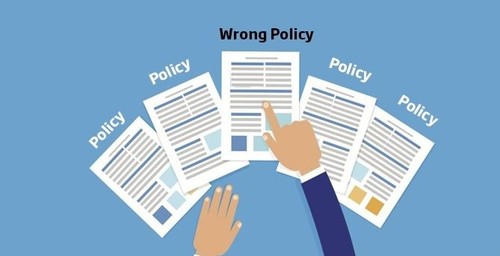A staggering 40 per cent of property investors have the wrong insurance.

There are more than two million property investors in Australia, owning around 27 per cent of all housing stock in the country and providing homes for almost 31 per cent of the population who are renters. Yet an alarming number of landlords don’t have the right insurance.
Figures from the Landlords’ Advisory Service reveal that 40 per cent of landlords do not have specialised landlord insurance. Consequently, many landlords are leaving themselves at risk financially.
While many landlords have insurance for their investment properties, often it is only a standard home and contents policy. Building insurance typically covers the bricks and mortar of the property, and is likely to cover events like fire or flooding. Contents insurance covers the policyholder’s belongings (e.g. carpets, curtains and furniture) in the property against damage and theft. Apartment owners often rely on strata insurance, which covers the physical building but not the contents. (Word to the wise: Depending on the cover details, using a standard policy designed for a homeowner for a rental could actually see the insurance voided as there are often exclusions for premises used for income-generating or commercial purposes.)
None of these policy types will generally cover investors for damage or risks associated with renting out their properties. Without specialised landlord cover, tenant damage (accidental or malicious) or theft of the owner’s property by the tenant is not covered. Liability, in the event that the tenant or someone else hurts themselves while on the property, may be excluded. Importantly, only specialist policies cover loss of rent.
If a tenant fails to pay their rent, the landlord can face significant losses. Even if the landlord is granted permission to retain some or even all of the bond, often it’s is less than the out-of-pocket expenses the landlord has suffered. The eviction process often takes months, during which time the landlord receives no rent and may also incur legal expenses. Generally neither the lost rent nor other expenses are recouped through the eviction process and the landlord has to take the tenant to civil court for compensation (a time-consuming, costly and often fruitless exercise).
At RentCover around two-thirds of all landlord claims are for loss of rent. There are many circumstances where landlords can be left out of pocket – damage prevents the property from being leased, tenant default/absconding, broken leases, death of a tenant, denial of access, tenant hardship, replacement locks, or costs associated with taking legal action against a bad tenant. But regardless of the reason why, the outcome is the same: the landlord loses their rental income.
With the risks associated with rental properties extending far beyond the cover offered by standard home and contents policies, specialist landlord insurance is a wise investment. All RentCover policies cover tenant-related risks including damage and loss of rent. Our team can help landlords and PMs determine
